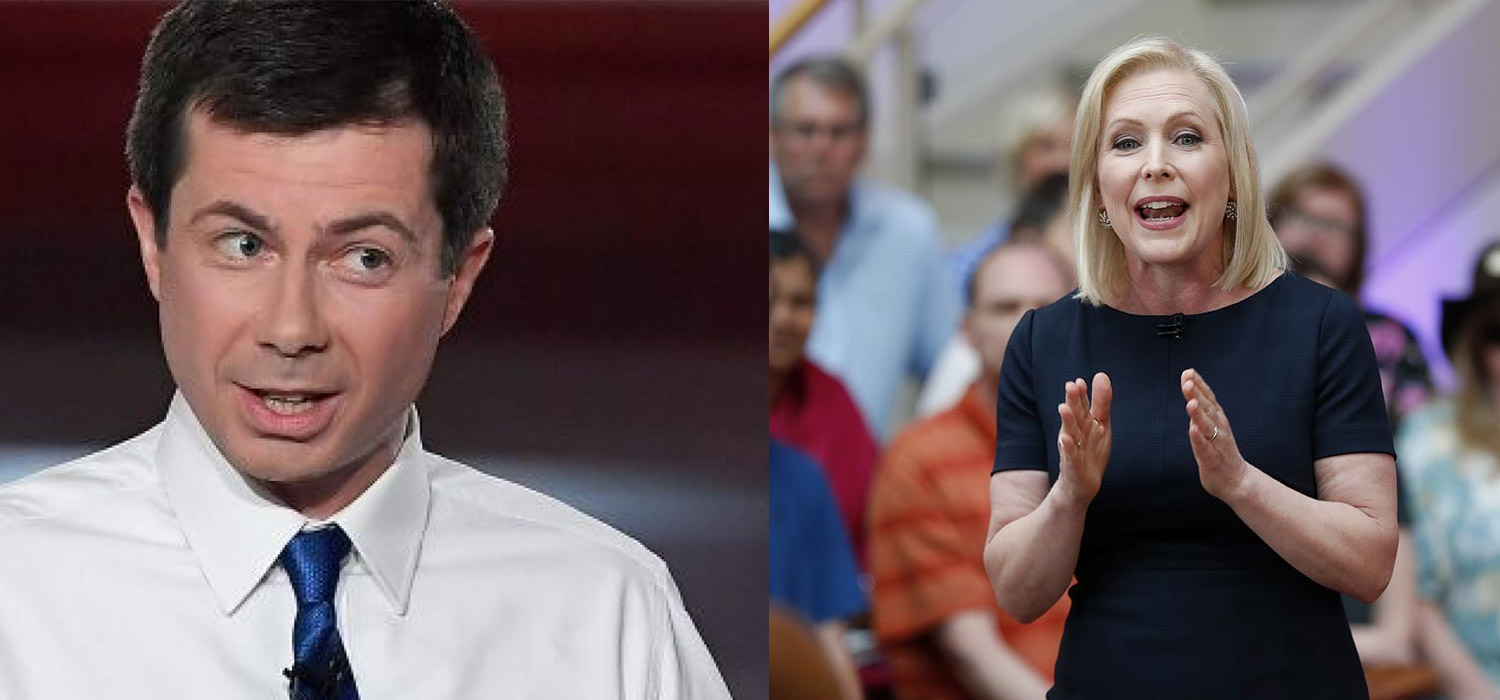This is old news from 2017, perhaps, but it’s been resurrected on the presidential campaign trail in the form of Democratic candidates disagreeing over the handling of allegations against Minnesota Senator Al Franken. Back in 2017, if you recall, Franken was pushed to resign, which he did in January 2018, over allegations of sexual misconduct much in line with the #MeToo climate of the day.
At the time, according to Vox, Franken’s fellow Senator from Minnesota, Amy Klobuchar, defended her colleague and never called for his resignation:
“He will not be quieted in any way,” Klobuchar, Franken’s Democratic colleague from Minnesota, said. “His voice will be stronger than ever, and I think that last call of action that he left us with — for a way in truth and truth in what we do and truth in politics — is something that no one should forget in this chamber.”
Klobuchar, who notably did not call on Franken to resign but said the allegations should be investigated by the Senate Ethics Committee, added that she knows she and Franken will “stay friends forever.”
The topic came up on the campaign trail this week with Mayor Pete Buttigieg fielding a question about how he thinks the allegations against Franken should have been handled and whether he would approach such things differently:
Democratic presidential candidate Pete Buttigieg said Monday he would not have called for then-Sen. Al Franken’s resignation in 2017 over sexual harassment allegations before having the opportunity to learn more about the claims.
…
“I think it was his decision to make, but I think the way we basically held him to a higher standard than the GOP does their people has been used against us,” Buttigieg said at a MSNBC town hall.
Pushed on his answer, Buttigieg said, “I think it is not a bad thing that we hold ourselves to a higher standard,” but he later added, “I would not have applied that pressure at that time before we knew more.”
This puts Buttigieg squarely at odds with several other Democrats in the field, including Sen. Kamala Harris, Sen. Cory Booker, Sen. Michael Bennet, Sen. Bernie Sanders, and Massachusetts Sen. Elizabeth Warren, all of whom called for Franken to resign in 2017.
Gillibrand took notice of Buttigieg’s answer yesterday and went to Twitter in response, backing up her view on Franken by pointing out the number of credible allegations against the former Senator from Minnesota:
“Eight credible allegations of sexual harassment, two since he was elected senator, and one from a congressional staffer,” Gillibrand said in a statement shared on Twitter. “That is not too high a standard, regardless of how the Republican Party handles this behavior, and worse. Yes, it was Senator Franken’s decision alone to leave the Senate — a path he ultimately chose — but for many senators, including myself and others in this primary field, that was not too high a of a bar to raise our voices and make clear we value women.”
Franken’s resignation was one of the most controversial among Democrats when it came to #MeToo era allegations being leveled against men in powerful positions. The disagreement over Franken’s fate had more to do with the views he espoused, which were well in line with Gillibrand in terms of Women’s Rights priorities, being measured against the credibility of the allegations, which by account, seem to be rather strong.
At the time, Sen. Claire McCaskill, of Missouri, emphasized this battle as being one of political advancement of progressive policies versus one of accountability for actions:
“There were credible allegations … that doesn’t change the fact that Al had a great body of work while he was here and was friends with many of us,” Sen. Claire McCaskill (D-MO) told Vox. “What you are seeing are people respecting his body of work, but it doesn’t change the fact that we did the right thing regarding the allegations.”
Buttigieg has taken the “slow down” approach, and as observers have watched the #MeToo movement slowly lose steam along the way, his views are probably more mainstream than those of Gillibrand among some parts of the electorate.
The question of Due Process always comes into play when these kinds of sexual misconduct allegations arise, and Franken’s case was no different. He had Democratic colleagues, like Klobuchar, defending him on the basis that he should at least stay in the Senate until a real investigation could take place, as well as Democratic detractors, like Gillibrand, who said the allegations spoke for themselves, and Franken had to go.
The difference of opinion between Buttigieg and Gillibrand underscores some differences within the field, and it will be interesting to watch these play out on the debate stage later this month.
Donate Now to Support Election Central
- Help defend independent journalism
- Directly support this website and our efforts
